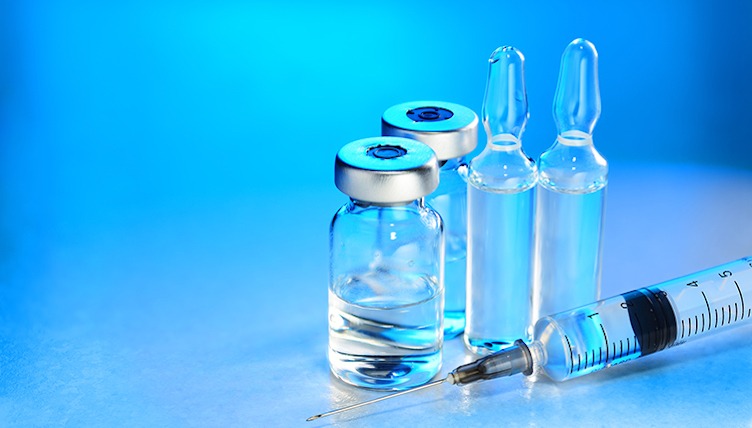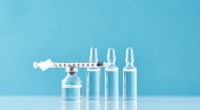FDA Addresses Supply Constraints Due to COVID-19; Plus, Packaging Suppliers Expand
The FDA has released a new guidance outlining a risk-based approach to facilitate changes to container-closure-system components, such as glass vials and stoppers, used in COVID-19 vaccines and therapeutics. The FDA issued the guidance to address supply constraints. What does the new guidance allow? Plus, updates from suppliers of materials used to deliver COVID-19 vaccines, COVID-19 treatments, and other parenteral drugs.
The bio/pharmaceutical industry as a whole and regulatory agencies are addressing increased demand for materials used to deliver vaccines and treatments for COVID-19 and other products. The US Food and Drug Administration (FDA) issued recent guidance to provide regulatory flexibility as it relates to glass vials and stoppers. For the industry, suppliers of glass packaging and other materials have ramped up production to meet increased demand resulting from COVID-19 treatments and vaccines as well as from overall increased demand for parenteral drugs, including biologic-based drugs.
FDA addresses supply constraints
In response to supply constraints for container-closure-system components, the FDA issued final guidance, COVID-19 Container Closure System and Component Changes: Glass Vials and Stoppers Guidance for Industry, to provide risk-based approaches to facilitate implementation of chemistry, manufacturing, and controls (CMC) changes to a container-closure system in an effort to mitigate the disruptive effect of the COVID-19 pandemic. These measures may include, but may not be limited to, recommendations for adjustments to submission content and reduction in reporting categories for CMC changes. The guidance applies to holders of approved new drug applications (NDAs), biologics license applications (BLAs), and abbreviated new drug applications (ANDAs) with respect to the reporting and implementation of some common changes to container-closure-system components consisting of glass vials and stoppers for approved sterile drug products, including biological products, administered parenterally. The guidance only applies to glass vials and stoppers.
The FDA outlined the rationale for the guidance, which took effect immediately (March 4, 2021). ”Many FDA-regulated human drugs (finished pharmaceuticals and biological products) related to, and products being developed for, the treatment and prevention of COVID-19 use glass vials and stoppers as their primary CCS [container-closure system]” said the FDA in the guidance. “The supply of CCS components for FDA-regulated products generally may become constrained as manufacturers respond to the public health emergency related to COVID-19. As a result, manufacturers of FDA-regulated products may need to update their approved applications to make changes to CCS components to meet current product demand or increase supply resilience.”
In the guidance, the FDA details its regulatory approach to CMC changes, outlines common changes related to glass vials and stoppers, and describes the tools to facilitate changes to container-closure-system components, including risk-based considerations and comparability protocols. In the guidance, the FDA said it will consider requests to submit certain changes to container-closure systems using a lower reporting category than that recommended in existing guidance if the applicants are experiencing constrained supply of container-closure systems or components if the relevant NDAs, ANDAs, or BLAs are related to the treatment or prevention of COVID-19 or other drugs in shortage.
Suppliers increase production
As the FDA provides increased flexibility to meet supply constraints of glass vials and stoppers, suppliers are also responding to increased demand for packaging materials resulting from COVID-19 vaccines and treatments as well as overall increased demand for parenteral drugs, including biologics.
In December (December 2020), BD announced plans to invest approximately $1.2 billion over a four-year period to expand and upgrade manufacturing capacity and technology for pre-fillable syringes and advanced drug-delivery systems to allow for continued growth of new injectable drugs and vaccines, but also provide surge capacity for increased pre-fillable syringe demand during times of pandemic response. The company plans to expand across its six global manufacturing locations and add a new manufacturing facility in Europe. The six current manufacturing facilities are in Columbus, Nebraska; Cuautitlán, Mexico; Fukushima, Japan; Le Pont-de-Claix, France; Swindon, UK; and Tatabánya, Hungary. The new manufacturing facility in Europe is expected to be operational by the end of 2023.
In addition, BD announced in its fiscal first quarter results (reported on February 4, 2021), it surpassed 1 billion injection devices orders for support of global COVID-19 vaccination campaigns, including commitments from countries such as the US, Australia, Canada, Germany, the Netherlands, Saudi Arabia, Spain, and the UK, among several others, as well as non-governmental organizations supporting vaccine deployment for developing countries. The company says it continues to be in discussions with governments and non-governmental organizations for additional orders for delivery later in calendar year 2021 and 2022. The company is partnering with the US government on a $70-million capital project to further expand its operations and manufacturing capacity in Nebraska. The new capacity is expected to be on line in the summer 2021 and once completed, the federal government will have priority access to hundreds of millions of injection devices to support vaccination efforts for COVID-19 and future pandemics.
In early March (March 2021), Schott reported that its pharmaceutical packaging business unit had delivered enough vials to provide more than 1 billion doses of COVID-19 vaccines. The company says it remains on track to deliver vials for more than 2 billion vaccine doses through 2021. The vials were delivered to projects globally with a focus on the US, Europe, and China. In early February (February 2021), the company reported that it has been investing in its production capacity since the spring of 2019 and was, therefore, able to ramp up capacities quickly during the pandemic. In total, investments in the pharmaceutical sector will amount to approximately $1 billion by 2025, with half of this amount spent by the end of 2021.
Other companies have or plan to increase production.“Facing the very challenging situation of a global pandemic, we will do everything to support any upcoming Covid-19 vaccine campaigns in close cooperation with our customers,” said Dietmar Siemssen, CEO, Gerresheimer, in a June 16, 2020 statement. “In 2019 and 2020, we are investing more than ever to deliver the highest quality products with additional capacity. We are fully prepared to support the global market demand for potential COVID-19 vaccines with our vials and syringes being produced in our large production facilities in the US, Mexico, Europe and Asia,“ he said.
“To support the mass vaccination campaign and the ramp-up industrialization needs, we invested in increasing the manufacturing capacity of vials from borosilicate glass,” said Franco Stevanato, now, Executive Chairman of Stevanato Group, who was CEO at the time of the June 16, 2020 statement. “Conscious of the role we play, we are committed to ensuring all patients around the world have access to the vaccines and treatments.”
As part of expansion plans overall, not specific to COVID-19, Stevanato opened a new Technology Excellence Center in Boston, Massachusetts last September (September 2020). The center supports the drug-development process from early-phase development to commercialization for container-closure-systems.








